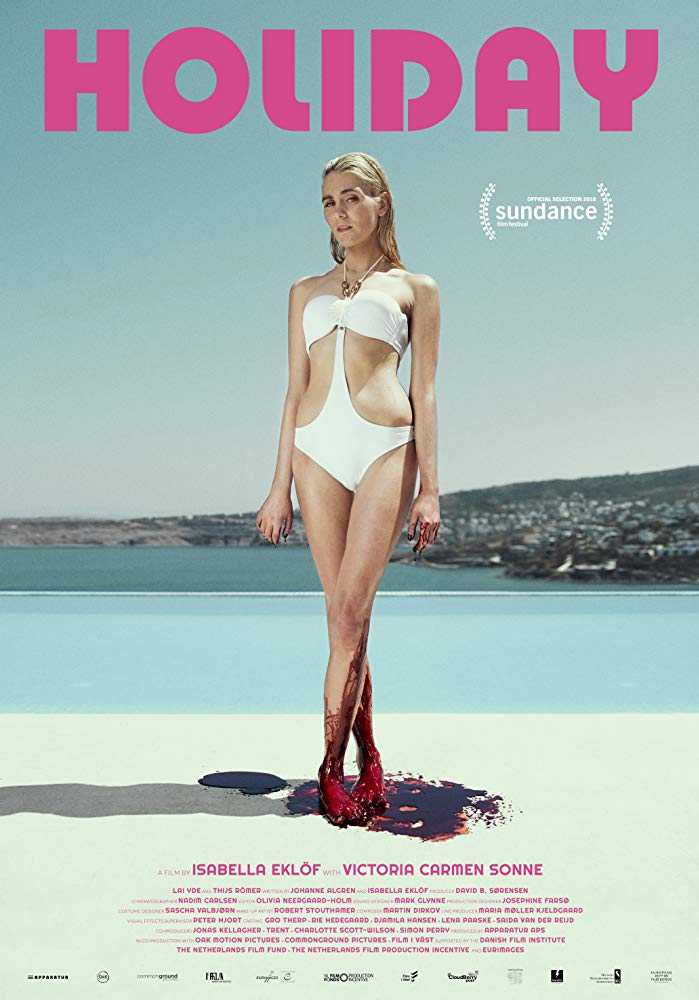I couldn’t find a category in my themed weeks in which to house this Danish-Dutch-Swedish co-production (albeit set in Turkey). There’s been a lot of talk in the last few years about what a “#MeToo” film might look like, but there have always been filmmakers making dramas about the psychological violence of patriarchy, and this is very much a film about that, which may not make it the film you most want to watch when you’re winding down at the end of a year—this is absolutely not to be confused with the more seasonally-appropriate The Holiday (2006), a very different film entirely—but it’s a compelling and direct drama all the same.
It’s probably fair to say this isn’t an easy movie to watch. The exquisitely poised formal style of the film, people framed in bright open, modern spaces (it’s set at a beach house in Turkey being rented by criminals) and with a largely fixed camera, creates the impression of a languid atmosphere, but yet there is evident tension reverberating through every frame. This is created from the start by situating us with a young blonde woman, Sascha (Victoria Carmen Sonne), who is being picked up by an older man. It’s not clear what their relationship is, but it becomes evident that he is not happy with her and when he slaps her it immediately puts the whole audience on edge. This man turns out to be a minor side character who’s not seen for much of the rest of the film, and when the filmmaker, Swedish director Isabella Eklöf, moves the action on to Sascha with her boyfriend Michael (Lai Yde) at the beach house, she momentarily allows us to feel relaxed by their apparently loving interaction. However, it soon becomes clear that he’s keeping her (she refers to him as her boss at one point) and that he’s involved with shady business, so his behaviour towards her and around her slowly comes to seem a little more creepy and insidious, especially when she makes friends with some other tourists in their resort.
Although the film follows Sascha, she never gets any monologues to explain how she feels, and much of the emotional journey is mapped out on her face and through her actions. What we’re left with is a film that seems to inscribe patriarchal violence into every frame, into the setting, the architecture, the vehicles, but that hardly lessens those scenes where it erupts into actual violence (even when it’s implied or just heard off-screen), and the transfigurative effect that it plays on the psyche of those like Sascha who are abused; her own turn towards the end of the film feels entirely within the scope of this story.
CREDITS
Director/Writer Isabella Eklöf; Cinematographer Nadim Carlsen; Starring Victoria Carmen Sonne, Lai Yde, Thijs Römer; Length 93 minutes. Seen at the ICA, London, Wednesday 7 August 2019. 



